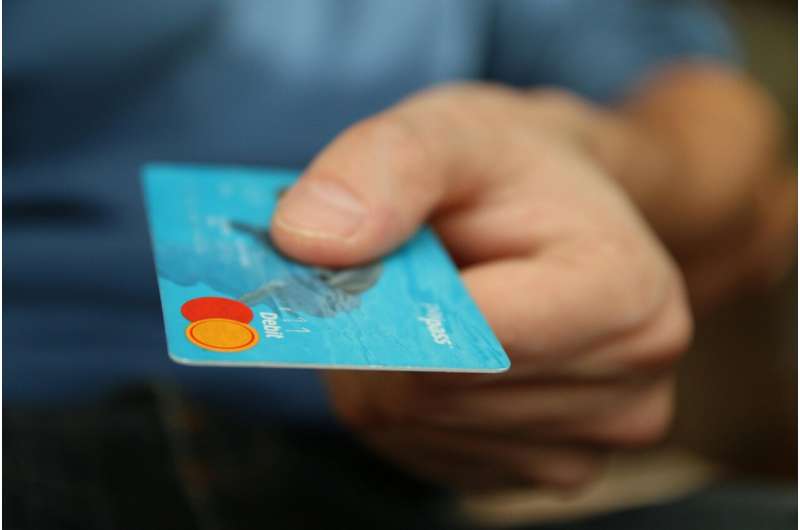Have you ever felt overwhelmed by your finances or struggled to stick to a budget? It’s a common challenge many people face, but there’s an effective yet often overlooked approach that can help—mindfulness. By incorporating mindfulness practices into your financial routines, you can gain greater control over your spending, reduce financial stress, and make more thoughtful decisions about your money.
Mindfulness and Budgeting: A Powerful Combination
In our fast-paced world, it’s easy to make impulsive and sometimes regrettable financial choices. Mindfulness, which involves being fully present and aware in the moment, can be a powerful tool to help you manage your finances more effectively. By being mindful, you can improve your financial habits and make more deliberate and conscious spending decisions.
Understanding Mindfulness in the Context of Budgeting
Mindfulness is not just about meditation or deep breathing exercises; it’s about fostering a heightened sense of awareness in all areas of your life. When it comes to budgeting, mindfulness involves paying close attention to your financial behavior, recognizing patterns, and being present in the moment when making spending decisions.
The Role of Mindfulness in Financial Habits
When you apply mindfulness to your financial habits, you become more attuned to where your money is going and why. This increased awareness can help you identify any unhealthy spending patterns, such as impulsive buys or retail therapy, and address them before they impact your budget. By being present, you can make more informed choices that align with your long-term financial goals.
Strategies for Integrating Mindfulness into Budgeting
To harness the full benefits of mindfulness for your budget, consider implementing some practical strategies. These methods can help reduce impulsive purchases, foster regular reflection on your spending, and improve your overall financial well-being.
Track Your Spending Mindfully
One of the first steps to mindful budgeting is to track your spending regularly. This means not only noting down every expense but also reflecting on the purpose and necessity of each purchase. Are you spending money on things that truly bring you joy, or are you succumbing to short-term desires?
Create Mindful Financial Goals
Setting mindful financial goals involves more than just determining how much money you want to save or spend. It means setting goals that align with your values and long-term aspirations. Reflect on what is important to you in life, and let those values guide your financial decisions. For example, if traveling is a core value, your budget should reflect savings for future trips rather than frequent, impulsive purchases.
Implementing Regular Check-ins
Scheduling regular financial check-ins is a crucial part of maintaining a mindful budget. Set aside time weekly or monthly to review your finances. Consider your income, expenses, and progress toward your financial goals. Use this time to adjust your budget as needed and to celebrate your financial successes, no matter how small.
Mindful Reflection on Spending Choices
After making a purchase, take a moment to reflect on it. Did the purchase bring you the satisfaction and value you expected? Reflecting on your spending choices can help you make better decisions in the future and avoid buyer’s remorse.
Benefits of Mindfulness in Budgeting
Mindfulness offers a range of benefits that can significantly improve your financial health and overall well-being. From enhanced self-awareness to reduced financial anxiety, incorporating mindfulness into your budgeting practices can make a tangible difference.
Enhanced Self-Awareness for Better Financial Decisions
Mindfulness helps you become more self-aware, enabling you to recognize and understand your financial habits on a deeper level. This self-awareness allows you to make more informed and deliberate financial decisions, steering you away from reactive spending and towards intentional choices.
Reduced Stress and Anxiety About Finances
Financial stress is a common issue that can take a toll on your mental and emotional health. Mindfulness practices, such as meditation and journaling, can help you manage this stress. By focusing on the present moment and adopting a non-judgmental attitude toward your financial situation, you can reduce anxiety and approach your finances with a clearer, more composed mindset.
Greater Financial Control and Confidence
As you become more mindful of your spending habits and financial choices, you gain greater control over your finances. This sense of control can boost your confidence in managing your money, making it easier to stick to a budget and achieve your financial goals.
Improved Long-Term Financial Health
By cultivating mindfulness in your financial practices, you can improve your long-term financial health. Mindfulness encourages sustainable spending habits and thoughtful financial planning, which can lead to a more secure and stable financial future.
Implementing Mindfulness Practices
Incorporating mindfulness into your financial routine doesn’t have to be complicated. There are several simple yet effective practices you can start incorporating today. From meditation to journaling, these methods can help you develop a more mindful approach to budgeting.
Meditation for Financial Mindfulness
Meditation is a powerful tool to enhance mindfulness, and it can be particularly beneficial for managing finances. Start with short, daily meditation sessions aimed at focusing your mind and reducing stress. Visualization techniques, where you imagine yourself successfully managing your budget and reaching your financial goals, can also be helpful.
Journaling Your Financial Journey
Keeping a financial journal is an excellent way to track your progress and reflect on your spending habits. Write about your financial successes, challenges, and goals. Journaling encourages self-reflection and can provide valuable insights into your financial behaviors and attitudes.
Regular Self-Check-Ins
Regular self-check-ins are crucial for maintaining a mindful budget. Set aside time each week or month to review your finances and assess your progress toward your goals. Use this time to reflect on your spending habits, make necessary adjustments, and reinforce your commitment to mindful financial practices.
Setting Specific, Mindful Financial Goals
Setting specific, mindful financial goals can provide direction and motivation. These goals should be aligned with your values and long-term aspirations. Break down your goals into smaller, manageable steps and celebrate each milestone you reach. This approach can help keep you on track and committed to your mindful budgeting journey.
Practical Examples of Mindful Budgeting
To better understand how mindfulness can be applied to budgeting, here are some practical examples. These scenarios illustrate how mindfulness can transform everyday financial decisions and lead to more positive outcomes.
Example 1: Mindful Grocery Shopping
Scenario: You’re planning your weekly grocery shopping and want to avoid overspending.
Mindful Approach:
- Preparation: Make a list of necessary items before going to the store.
- Presence: Focus on staying present while shopping, being mindful of each item you place in your cart.
- Reflection: After shopping, review your purchases and reflect on whether they align with your needs and budget.
Example 2: Reducing Impulse Purchases
Scenario: You often find yourself making impulse purchases while browsing online stores.
Mindful Approach:
- Awareness: Recognize the triggers that lead to impulse buying (e.g., stress, boredom).
- Pause: Implement a pause before making any non-essential purchase. Give yourself 24 hours to decide if you really need the item.
- Reflection: Reflect on past impulse purchases and their impact on your budget.
Example 3: Setting a Vacation Budget
Scenario: You’d like to save for a vacation while staying within your budget.
Mindful Approach:
- Goal Setting: Define your vacation goals, including destination, budget, and timeline.
- Tracking: Monitor your savings progress regularly and make adjustments to your spending as needed.
- Presence: Enjoy the process of planning and saving for your vacation, staying mindful of your financial choices along the way.
Overcoming Challenges in Mindful Budgeting
While the benefits of mindful budgeting are clear, there are challenges you may encounter along the way. Recognizing and addressing these challenges can help you stay committed to your mindful financial practices.
Challenge 1: Old Habits and Patterns
It can be difficult to break free from long-standing financial habits and patterns. Mindfulness requires consistency and patience. Stay committed to your practices, even when progress feels slow.
Challenge 2: External Pressures and Influences
Societal and cultural influences, such as advertising and social media, can make it challenging to maintain mindful spending habits. Focus on your values and goals, and practice setting boundaries to minimize these external pressures.
Challenge 3: Emotional Spending
Emotional spending is a common challenge that can derail your budget. Use mindfulness to become aware of the emotions driving your spending habits and develop healthier coping mechanisms.
Challenge 4: Keeping Motivated
Maintaining motivation for mindful budgeting can be challenging, especially when immediate results are not visible. Regularly remind yourself of your long-term goals and the benefits of mindful budgeting to stay motivated.

Tools and Resources for Mindful Budgeting
Several tools and resources can aid you in your mindful budgeting journey. These tools can help you track your spending, set goals, and maintain mindfulness in your financial practices.
Budgeting Apps
Budgeting apps can be invaluable for tracking your expenses and maintaining a budget. Apps like Mint, YNAB (You Need a Budget), and PocketGuard offer features that can help you stay mindful of your spending habits.
| App | Features | Cost |
|---|---|---|
| Mint | Tracks expenses, creates budgets, free credit score, bill tracking | Free |
| YNAB | Zero-based budgeting, goal tracking, detailed spending reports | Subscription required |
| PocketGuard | Simplifies budgeting, monitors spending, offers saving goals | Free/premium options |
Financial Journaling Tools
Tools for financial journaling can help you reflect on your financial journey. Consider using traditional paper journals or digital tools like Evernote to document your experiences, challenges, and achievements.
Meditation Apps
Meditation apps can guide you in developing mindfulness practices that can enhance your financial well-being. Apps like Headspace, Calm, and Insight Timer offer guided meditations focused on mindfulness and stress reduction.
| App | Features | Cost |
|---|---|---|
| Headspace | Guided meditations, mindfulness courses | Subscription required |
| Calm | Meditation, sleep stories, relaxation music | Free/premium options |
| Insight Timer | Large library of free guided meditations | Free/premium options |
Success Stories: Real-Life Examples of Mindful Budgeting
Hearing about others’ success with mindful budgeting can provide inspiration and encouragement. Here are a few real-life examples of individuals who have successfully integrated mindfulness into their financial practices.
Sarah’s Journey to Financial Freedom
Sarah struggled with credit card debt and impulsive spending for years. By incorporating mindfulness practices, such as daily meditation and reflective journaling, she was able to gain control over her finances. She tracked her spending meticulously and set mindful financial goals aligned with her values. Over time, Sarah paid off her debt and built a sustainable savings plan, leading to greater financial stability and peace of mind.
John’s Path to Conscious Spending
John often found himself buying unnecessary gadgets and clothes, driven by the latest trends. By practicing mindfulness, he learned to identify the emotional triggers behind his spending habits. John started setting specific financial goals and performed regular self-check-ins. As a result, he reduced his impulse purchases and redirected his money towards more meaningful experiences, such as traveling and personal development.
Emma’s Mindful Money Management
Emma was overwhelmed by the pressures of budgeting and felt constant anxiety about her finances. Through mindfulness practices, like meditation and gratitude journaling, she developed a more positive relationship with her money. Emma set realistic and mindful financial goals, tracked her expenses, and celebrated small successes along the way. This approach helped her reduce financial stress and build confidence in her money management skills.

Conclusion: The Path to Conscious Spending
Incorporating mindfulness into your financial practices can significantly enhance your ability to stay within a budget by promoting conscious and thoughtful spending habits. By being present and aware of your financial behaviors, you can make more deliberate choices, reduce impulsive spending, and align your financial decisions with your values and long-term goals.
Mindfulness offers a path to greater self-awareness, reduced financial stress, and improved financial control, ultimately leading to a more stable and secure financial future. As you embark on your mindful budgeting journey, remember that consistency and patience are key. Embrace the process, stay committed to your practices, and celebrate your progress along the way.





